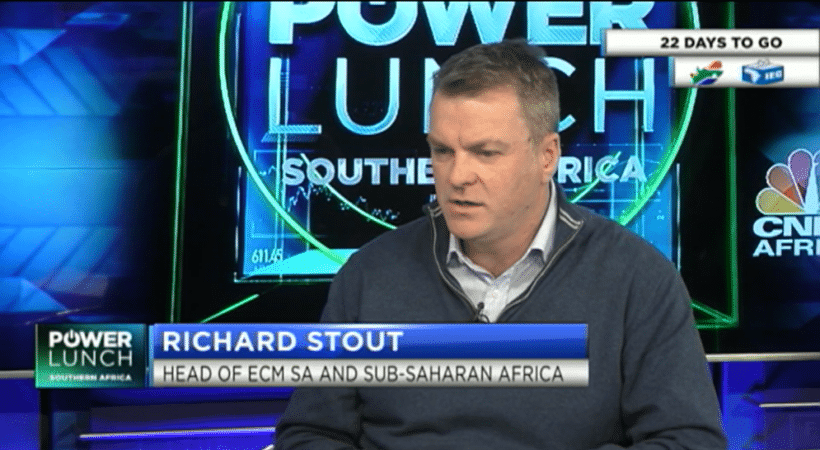
Standard Bank Group, Africa’s largest bank by assets, forecasts increased South African corporate activity and stock market listings in the second-half of the year after elections later this month.
“Certainly the conversations we’re having with corporates does suggest that we’re going to start to see a recovery,” Richard Stout, Head of Equity Capital Markets SA and Sub-Saharan Africa at Standard Bank Group, told CNBC Africa’s Power Lunch Southern Africa show. “How quickly that comes through I think depends on I guess the election outcome and how quickly confidence returns but certainly anecdotally yes we’re certainly forecasting a busier back end to this year and certainly a busier 2025.”
Power utility Eskom has provided 40 days of uninterrupted power supply since last month, lifting business activity across the country, according to both the ABSA Purchasing Managers Index and the S&P Global South Africa Purchasing Managers’ Index which rose to 50.3 in April from 48.4 in March, its highest reading since February.
South Africans vote for new national and provincial governments on May 29 with the ruling African National Congress (ANC) expected to suffer a reduced majority. Most analysts forecast the ANC to dominate any coalition government should it fail to win more than 50%, ensuring a continuation of its mixed economic policies and collaboration with the private sector.
The collaboration helped the country narrowly avoid a recession in the fourth quarter of 2023 and the economy is seen growing by more than one percent this year, after expanding by 0.6 percent last year.
The JSE, Africa’s largest and oldest stock market, has been beset by delistings as the economy struggled with about 278 companies on its main board versus more than 600 companies in 1998. In response, the JSE last month launched its biggest drive to lure more companies to the exchange.
Stout says those efforts were positive but will take time to bear fruit.
“I certainly think what the JSE are trying to implement here is a positive, and I certainly think it’s going to help corporates raise capital more efficiently on the JSE,” he said. “And hopefully that will encourage more companies to consider a listing. (But) I think as much as this helps deal with the supply side of the equation, I think we do still need to make sure that we’re giving the demand side enough incentive to support the types of companies that are going to benefit from these rules.”